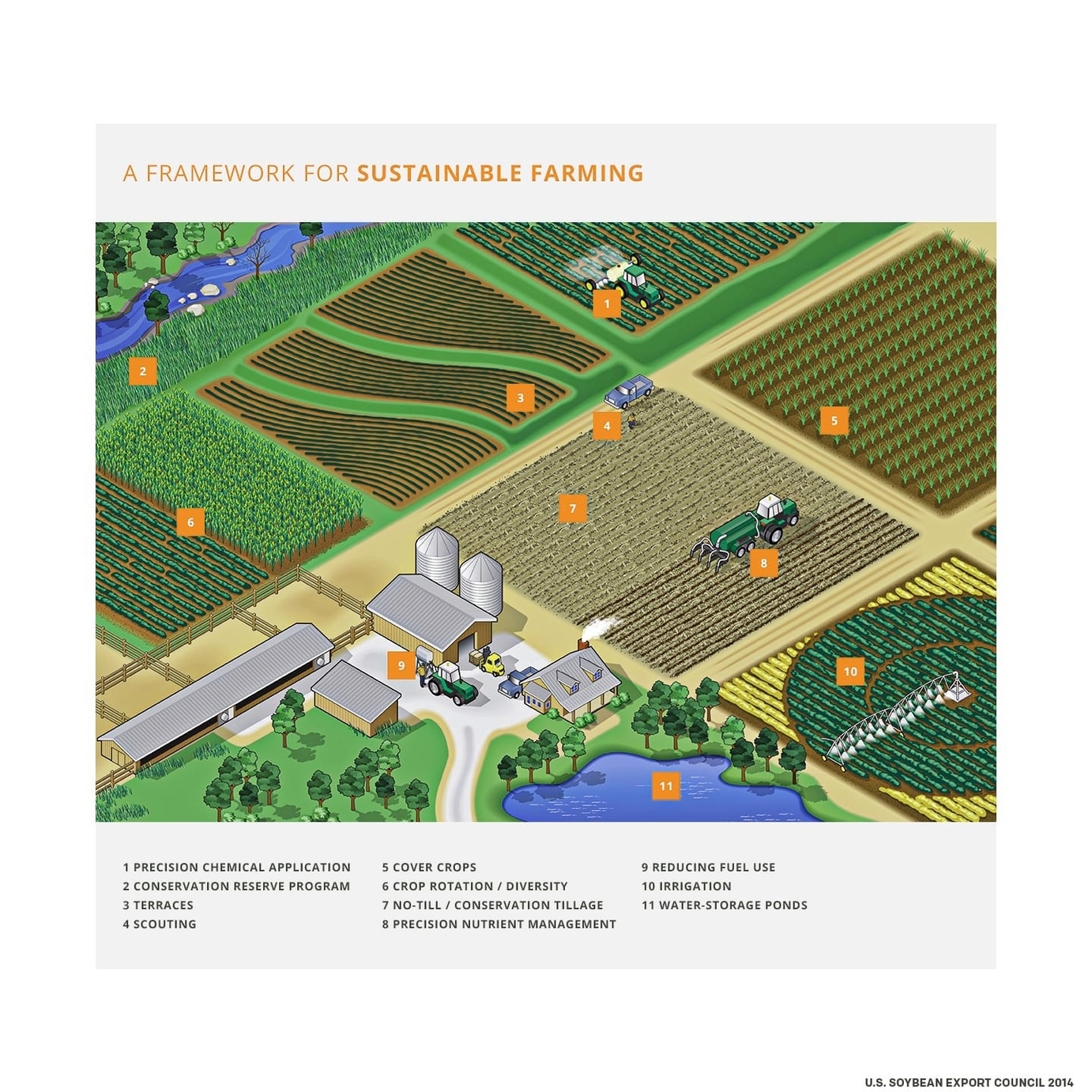
Flow depicting precision agriculture in crop production is a process that involves the use of technology to optimize crop yield and reduce waste. Precision agriculture (PA) is a farming technique that uses a range of technologies or diagnostic tools such as global navigation satellite system (GNSS), geographic information systems (GIS), yield monitors, near-infrared reflectance sensing, and remote sensing in collecting and analyzing the in-field spatial variability data, thereby enabling farmers to monitor and make site-specific management decisions for soils and crops . PA technology enables visualization of spatial and temporal variations of production resources and supports spatially varying treatments using variable rate application technologies installed on farm agricultural field machinery . The demand for PA is driven by recognition within-field variability and opportunities for treating areas within a field or production unit differently .
PA can be applied to multiple cultural practices including tillage, precision seeding, variable rate fertilizer application, precision irrigation and selective pesticide application; and facilitates other management decisions making, for example, site-specific deep tillage to remove soil compaction . PA technology ensures optimal use of production inputs and contributes to a significant increase in farm profitability. By reducing crop production inputs and managing farmland in an environmentally sensible manner, PA technology plays a vital role in sustainable soil and crop management in modern agriculture .
The use of PA technology in crop production has several benefits. It helps farmers to identify the most productive areas of their fields and adjust their management practices accordingly . This can lead to increased crop yields and reduced input costs, which in turn can increase farm profitability . PA technology also helps farmers to reduce the environmental impact of their operations by minimizing the use of fertilizers, pesticides, and other chemicals . This can help to reduce soil erosion, improve water quality, and protect wildlife habitats .
In conclusion, precision agriculture is a promising technology that can help farmers to optimize crop yield, reduce waste, and improve the sustainability of their operations. By using a range of diagnostic tools and technologies, farmers can monitor and manage their fields in a site-specific manner, thereby improving the efficiency of their operations and reducing their environmental impact. PA technology is an important tool for modern agriculture and has the potential to revolutionize the way we produce food in the future.
: Shaheb, M. R., Sarker, A., & Shearer, S. A. (2022). Precision Agriculture for Sustainable Soil and Crop Management. In Soil Science – Emerging Technologies, Global Perspectives and Applications (pp. 1-20). IntechOpen..
